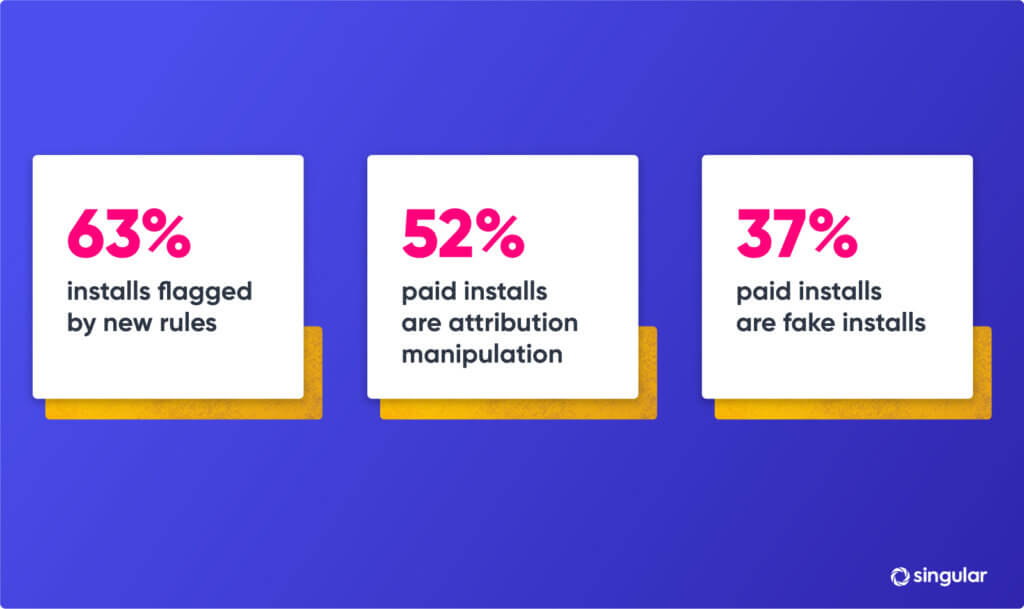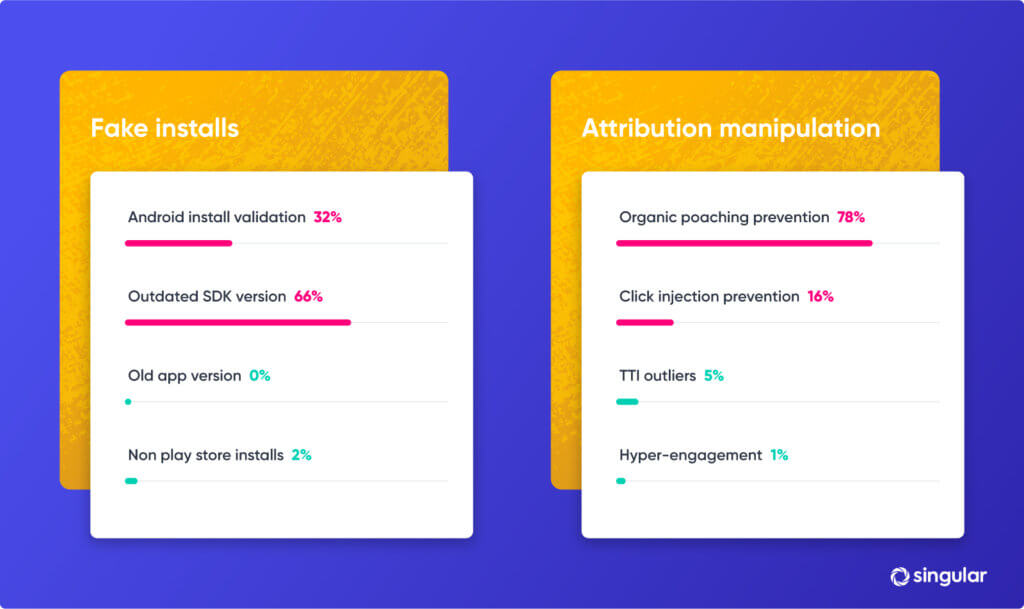Report: The Death of Install Fraud on Android
The worst part of install fraud isn’t necessarily the money you have wasted.
It’s the money you’re going to waste.
Once an app marketer pays for fraud they’ve both rewarded thieves and they’ve invested in the development of ever more and more sophisticated ways of getting defrauded. That’s the money you have wasted — past tense.

Even worse, however, they’ve polluted the only first-party marketing performance data they have on which to base future advertising investments: the results of past campaigns. And that means their future campaigns will be optimized based on bad data, incorrect data … fraudulent data.
That’s the money you’re going to waste — future tense.
Which is why Singular’s new deterministic ad fraud-fighting technology is so important.
Most fraud prevention tools are probabilistic: statistical guesses based on data points like the amount of time between an ad click and an install. Or the location the click came from, or characteristics of the device on which the app is installed.
Probabilistic means there is some non-zero error rate.
That none-zero error rate adds up. If your advertising performance data is skewed by fake installs, imaginary users, and fraudulent clicks, your future marketing decisions are, simply said, going to be wrong.
Beta testers using Singular’s new deterministic Android install validation technology are finding that it is catching much more fraud. Many of these clients are major brands, have huge money-making retail apps, or publish top-grossing games. As such, they’re spending literally tens of millions of dollars annually on app install advertising.

So the savings when you catch more fraud are considerable:
“This will save us literally hundreds of thousands of dollars every month, and lead us to make more effective marketing decisions,” says Channy Lim, Head of BI Department at Com2uS, maker of the hit mobile game Summoners War. “Singular’s updated Fraud Prevention Suite is the most powerful mobile app install fraud prevention I’ve seen.”
Those are strong words.
In data from other early testers of Singular’s updated fraud prevention suite, multiple ad networks show fraud rates of 80% or higher. Some are 100% fraudulent. (Get all the details in our 2019 fraud report: The death of install fraud on Android.)
In a market like that, advertisers have to protect themselves.
Glu Mobile, which makes games like Deer Hunter, Kim Kardashian: Hollywood, and Diner Dash Adventures, has seen the impact as well.
“Singular’s new fraud-fighting technology helps our User Acquisition team focus on legitimate campaigns and significantly boost return on ad spend,” says John Parides, Senior Director of User Acquisition.
The new technology that enables this is a trade secret, of course. But what we can reveal is that we’re looking deeper at the communications legitimate apps make with Google Play. Using that and other data points, Singular’s cyber-security team has found a way to identify fake installs with 100% accuracy.
That includes fake users on real devices, fake installs on fake devices emulated in software, and fake installs that never really happened in the first place.
“This is a game-changer and will play a key role in making growth decisions,” according to Ronak Jain, Mobile Marketing Manager at Cleartrip, a top travel platform for emerging markets. “Singular’s new progressive anti-fraud solution detected more ad fraud than competing solutions.”
Along with the new Android install validation technology, Singular is also releasing updates to its fraud-fighting arsenal to better combat other types of fraud: click injection and organic poaching.
And, get our free report on what the new technology is revealing in marketers’ campaigns.
Stay up to date on the latest happenings in digital marketing


